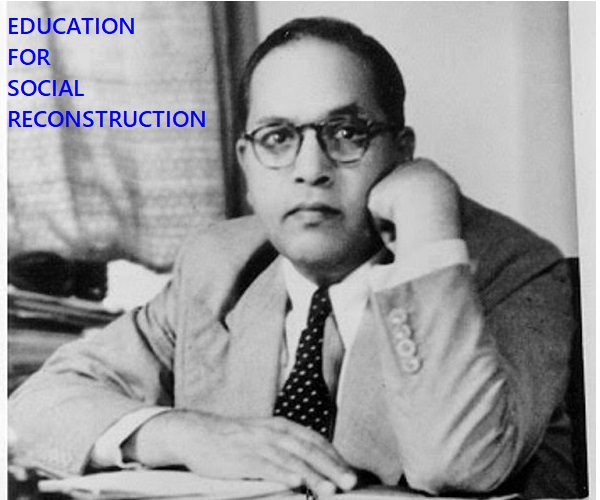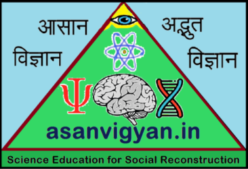March, 2018; It was the usual board exam time going on here in Turbhe, Navi Mumbai, where i have been taking science classes for hindi medium learners. Right before the day of the exam in the evening time, as the school was closed, myself and some 10th standard students decided to find a spot to sit and study amidst the hustle and bustle of the oddly pungent (due to nearby dumping ground) yet vibrant urban slum, Turbhe.
As we found a small Shiva temple which was as usual empty, and decided to occupy our place to sit and discuss last minute doubts, couple of girls crawled to the back and stood kind of shocked. After the usual silence and hesitance from their side, i casually said “I get it, It’s ok if you have periods. There is nothing unholy about it! Of all gods, the most defiant and radical one, named Shiva, definitely won’t get angry. You all know about the biology of periods right, it is there in the syllabus!” The last reminder about their impending exam worked and we covered the syllabus. Now the same girls have done well in 11th and 12th and are the first among those their family to go to college for higher education.
The girls were the brightest ones, who knew the syllabus very well. And as reproductive system is a part of the curriculum, there is no doubt about their knowledge of physical aspect of it and how to use sanitary napkins etc. Yet, even after knowing it well, what kind of education system does not tell them that periods are not unholy, what kind of science education system we are in which does not care about breaking pseudo-scientific taboos and superstitions?

“It is the education which is the right weapon to cut the social slavery and it is the education which will enlighten the downtrodden masses to come up and gain social status, economic betterment and political freedom‟, are the views of Dr B.R. Ambedkar, the Chairman of the Drafting Committee of the Constitution of India, who devoted most of his social, moral and political efforts to achieve the ideal, “Sarvenah Bhavantu Sukhinah SarveSantu Niramayah” i.e. the good and prosperity of all and struggled throughout his life for securing the rightful place for the discriminated, deprived and downtrodden sections of our society. Many studies on Ambedkar covers his pursuit to establish an egalitarian society in India, and had been discussed widely by different scholars, but very few studies are available that talks about his views on education.
EDUCATE! AGITATE! ORGANIZE!
These were the three commandments of Dr B R Ambedkar, who went from a victim of tyrannic caste oppression in a village school where he was made to sit on a rag at the back of the class (so that he does not “pollute” his upper caste classmates), to becoming the Chairman of India’s Constitution Drafting Committee and arguably one of the most venerated Indian figure, even by his ideological opponents. So happened in between? What was his story?
In June 1952, Columbia University in New York recognized him with an honorary degree in for his role in framing the Indian Constitution. Ambedkar surely recognized New York’s call from his alma mater – he studied there from 1913 to 1916 under some of the best professors America had to offer. But during his visit in June 1952, there was one person whose absence was felt deeply by him: and that was John Dewey, the American philosopher of pragmatism, educator and former teacher of Ambedkar from his days at Columbia University. Unfortunately Dewey passed away after a short illness 2 June 1952, as Ambedkar was on his way to New York. In his letter to his wife, Savita, he lamented that “there are many old friends who have gathered around me and [are] helping me in all sorts of ways. I was looking forward to meeting Prof Dewey. But he died on the 2nd when our plane was in Rome. I am so sorry. I owe all my intellectual life to him. He was a wonderful man.”[1]
For those who have read the powerful, no-nonsense and point blank style of Ambedkar’s writing, his unconditional reverence and statement like “I owe all my intellectual life to him” might seem a bit out of his character. Nonetheless it shows how much Ambedkar respected and admired Dewey, and it is also important to understand why Dewey received so much adoration and veneration.
John Dewey’s view on Education: As a tool for social reconstruction
“John Dewey was a leading proponent of the American school of thought known as pragmatism, which is a naturalistic approach that viewed knowledge as arising from an active adaptation of the human organism to its environment.”
So let’s break it down a bit and digest each part. Dewey viewed education as “Naturalistic” “Active” and “Adaptive”. He viewed the urge for knowledge and education comes as a natural instinct of the human mind when it interacts with the wonderful bizarre world and how to make sense of it.
Don’t get too relaxed by the word “natural” in terms of education, John Dewey’s education was certainly not an easy way out. As he said, “The path of least resistance and least trouble is a mental rut already made. It requires troublesome work to undertake the alternation of old beliefs.” He also characterized it as an active, mutative and adaptive process, much in line with how species naturally evolve through evolution, but in a more self-driven and accelerated manner. One might wonder how evolution and education can be compared, when the former takes thousands of years to reveal changes while the latter has to be acquired within say ten years or you will be labelled a failure! At a physiological level, one can say that education is intrinsically the evolution of neuron’s structure, strength and function; as neurons make new connections, grow in number and break old patterns, which at the level of mind results in generation of new thoughts and ideas, at the cost of discarding older habit patterns.

Unfortunately, not many educational institutes view education this way, but the emerging field of brain sciences has broken a lot of hectoring myths like “Our brain cannot grow after 20s”, “Habits are hard to change”, and has been proving time and again that our brain and neurons indeed are the most malleable and modifiable part of our body, and in fact they keep doing so on daily basis while learning and interacting with the environment! We hope schools function less like a factory where learners are “OK.Tested. Made fit for the society” but more like a forest where “every unique tree adds beauty and diversity”.
The current education system might “educate” us about the facts but it is unable to agitate the curiosity and skepticism which is needed to weed out nonsense from sense, and thereby it fails to help the next generation self-organize as a better society, instead it tries either be silent about it or worse, preserve it’s rotten idea apples and pass it on wrapped in a plastic bag with label, “This is your ancestral heritage, be proud of it”.
Instead of ranting about how education should be and not, casually engage yourself in the list of scenarios given below and compare the alternate possibilities as given in the links, and see if there is any tool that can be picked up to renovate the education system:
- Have you seen most of the education system authoritarian and hierarchical ? Does it feel as if “Elixir of Knowledge” is passed down from the authority of teacher to empty cranial vessels of learners ? Does such an education promote skepticism and spirit of inquiry ? Will the child also learn that whatever that comes out from the mouth of the “authority” is right ? Does such can ever create educated mass which can challenge the authority if it goes wrong ? (https://www.nextgenlearning.org/articles/can-children-really-direct-their-own-learning)
- Is our education system a bit too competitive and has lost its heart ? Instead of having exams where it is more like “All on their own” and “may the best one win and rest lose”, can we have exams with conditions like, “Each class will be divided into groups of 4, and all the 4 has to pass then only each group will pass.” ? How will learners adapt to that ? Aren’t the educated mass which has developed the habit of helping each other more likely to take up challenges like, ” All have to get food to eat, no one should be left hungry” and tackle such issues with vigor instead of self centered apathy ? (https://www.edutopia.org/blog/empathy-classroom-why-should-i-care-lauren-owen)
- In this age of internet, where any factual knowledge or practical skill is easily within the reach of all, shouldn’t curiosity, compassion, empathy and collaboration be the main lessons kids should be learning in school ? Especially when we have researches showing that educational experiences that are active, social, contextual, engaging, and student-owned lead to deeper learning (https://teaching.cornell.edu/teaching-resources/engaging-students/collaborative-learning) .
The natural conclusion of this line of thought is what Dewey said, “Education is not a preparation for life, education is life”. Irrespective of whether one goes to school or not, we all are educated by what life as a teacher has to offer. There is no escape from it. Also in the same line, it is also obvious that some ways of “education” can lead humanity to greater well-being whereas other may lead to stagnation or worse deterioration.
Both Ambedkar and Dewey considered education as a tool for social reconstruction. At the first level, education of the individual results in reconstruction of the nature of brain and mind, and when many minds connect the new changes permeate into the fabric of the society.To quote Dewey again, “The belief that all genuine education comes about through experience does not mean that all experiences are genuinely or equally educative.” And it is in this aspect we have a lot of learning or rather unlearning to do in terms of making education relevant to the society.

